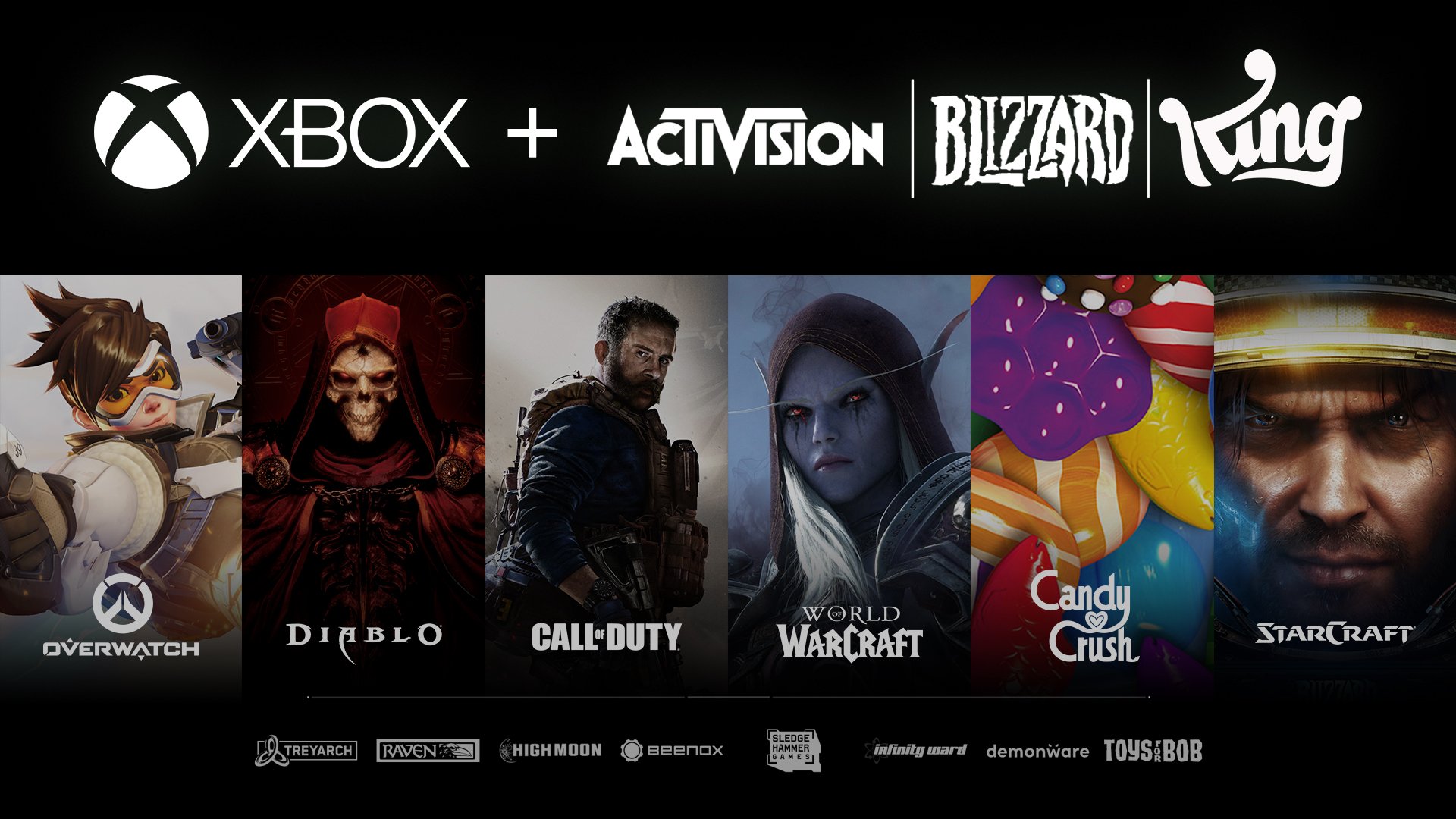
Microsoft’s acquisition of the troubled company is the biggest games industry deal in history — and it’s not necessarily great news for gamers.Let’s get the numbers out of the way first. Microsoft’s announcement that it was buying Activision Blizzard for an enormous sum of what was revealed to be $68.7bn sent jaws dropping to both real and virtual floors around the world. It came just a week after Take-Two broke industry records by paying $12.7 billion in cash and stock for mobile and social giant Zynga, and dwarfs it significantly.
This is an all-cash transaction and values Activision Blizzard at $95 a share, well over the odds of Friday's closing stock price of $65.39, but equally well down from its 2021 peak of $103.81 nearly 11 months ago. It’s a comparative bargain and that is because the company behind everything from Call of Duty, Overwatch, World of Warcraft, and Candy Crush is in rather a lot of serious trouble.
Activision Blizzard’s reputation has been in the can following the state of California’s lawsuit against it last year accusing it of running a ‘frat house’ culture of widespread sexual discrimination and harassment. More damaging accusations of misogyny have surfaced since and the company has been forced to establish an $18m fund to compensate victims seeking damages, while trying to root out the problem with around 40 sackings.
One would suspect that victims can rightly point to $18m as not being anywhere near enough now in the context of $68.7bn. And the situation at Activision Blizzard is ongoing enough that Microsoft spent a whole paragraph in its announcement of the deal talking carefully of inclusion, dignity, and respect. The acquisition is going to take up to 18 months to complete, though, by which time hopefully the culture within AB will be dramatically different.
Bolstering Game Pass
The deal is a win all round. Wildly successful though Activision Blizzard is, arguably it was going to need something like this to survive the waves of scandal. And for Microsoft it brings a whole raft of Triple-A titles into its stable as it looks to further build out its $10-$15 a month console and PC Game Pass offering.
And it’s here that things get potentially tricky for gamers. Microsoft said in its statement that “Activision Blizzard games are enjoyed on a variety of platforms and we plan to continue to support those communities moving forward.” The problem is that it made exactly the same sort of noises when it acquired Bethesda for $7.8bn at the tail end of 2020, only for many of the developer’s bigger franchises, such as The Elder Scrolls, to shift towards Microsoft exclusivity once the deal was finalised.
Because this is very much what this is about: securing the longterm future of the Xbox and any subsequent platforms, even future forays into the metaverse (with a hefty side bet on mobile specialist King, developer of the ubiquitous Candy Crush). Having been on the wrong side of history many times in the past (anyone remember Microsoft’s big push on CD-ROM just as the internet was taking off?), Redmond is firmly of the opinion that a Netflix-style gaming subscription is going to be the future of gaming. And, as with the streaming market, exclusivity is what seals the deal with the mainstream gaming consumer.
Some more big numbers are important here. Microsoft has around 25 million subscribers; Activision Blizzard meanwhile has nearly 400 million monthly active players in 190 countries and three separate billion-dollar franchises.
“This acquisition will make Game Pass one of the most compelling and diverse lineups of gaming content in the industry,” says the company. “Upon close, Microsoft will have 30 internal game development studios, along with additional publishing and esports production capabilities.”
That is a lot of talent and a very deep pool of resources to draw upon in the battle for exclusive content that has, till now at least, been won by the Sony camp and its PlayStation 5 console. Microsoft will be hoping that it will effectively be able to recreate what Disney did with Marvel in the streaming universe, pulling its titles from Netflix and pumping them into its own offering, only this time round with the likes of Diablo, Call of Duty etc on Game Pass.
It’s a big bet and it’s a lot of money to pay, especially for such a troubled company. The task now will be to sort out its disastrous internal cultures, get it producing great titles once more, and hope that the subscription model really starts to take off in the gaming community. Game on.
Tags: Technology Business


Comments